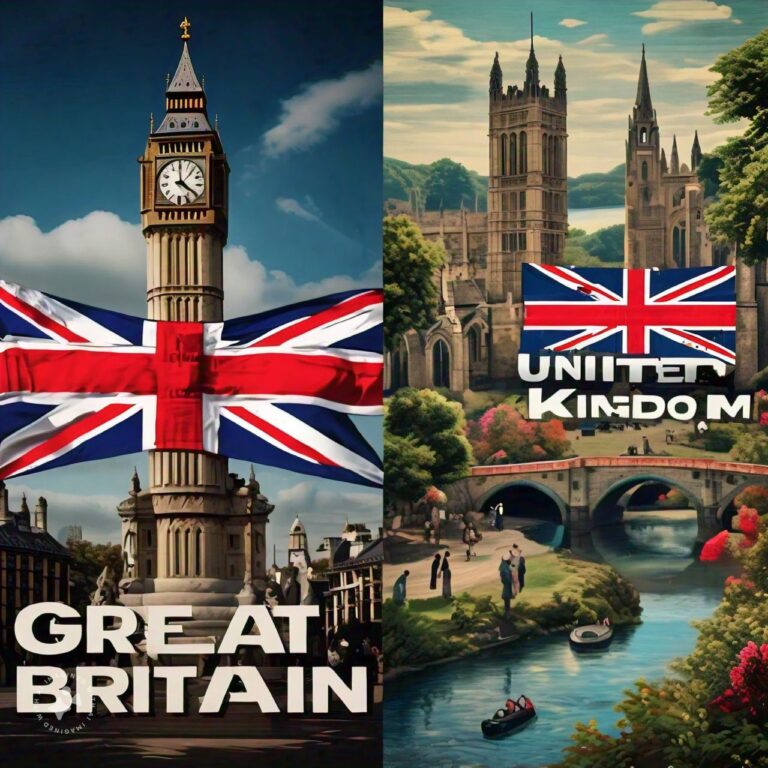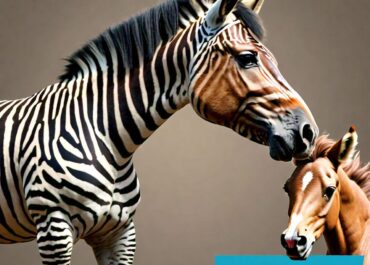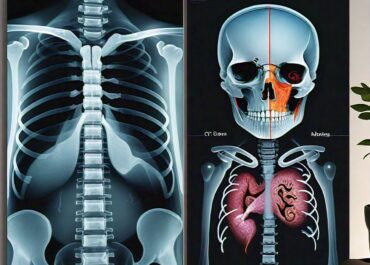
Differences Between Great Britain and The United Kingdom
When discussing the political and geographical makeup of the British Isles, terms like Great Britain and the United Kingdom are often used, sometimes interchangeably, but they have distinct meanings. Great Britain refers to the island that includes three nations: England, Scotland, and Wales. It is primarily a geographical term describing the largest island of the British Isles. On the other hand, the United Kingdom (UK) is a political entity that includes not only Great Britain (England, Scotland, and Wales) but also Northern Ireland, which is located on the island of Ireland. The United Kingdom is thus a sovereign state that spans more than one island.
The confusion between the terms often arises because the political and geographical boundaries overlap. While Great Britain is purely geographical, referring to the largest of the British Isles, the United Kingdom is a sovereign state that encompasses Great Britain and Northern Ireland. It’s important to note that while Great Britain includes three countries, the UK represents a broader political structure, including Northern Ireland, making it a multi-national state. Understanding these distinctions is key when discussing British geography and politics, as well as the various identities and allegiances within the UK.
Great Britain Overview
What is Great Britain?
Great Britain is the largest island in the British Isles, and it is composed of three countries: England, Scotland, and Wales. Great Britain is primarily a geographical term that refers to the landmass itself, which is surrounded by the Atlantic Ocean to the west, the North Sea to the east, and the English Channel to the south. It is the ninth-largest island in the world and the largest in Europe. The island has a rich history dating back thousands of years, and it is home to some of the world's most iconic landmarks and cities, such as London, Edinburgh, and Cardiff.
Historically, Great Britain has played a significant role in global events. Its influence expanded dramatically during the Age of Exploration and the rise of the British Empire, when it became the center of one of the largest empires in world history. Economically and culturally, Great Britain has had a lasting impact, particularly during the Industrial Revolution, which originated in Britain and transformed the world. Today, Great Britain continues to be an economic powerhouse, contributing significantly to global finance, arts, science, and technology.
Although Great Britain is home to three distinct nations—England, Scotland, and Wales—each with its own identity, culture, and legal systems, they all share the same landmass and have been politically united in various forms since the 1707 Acts of Union, which unified England and Scotland. However, each nation retains a strong sense of identity, with devolved governments for Scotland, Wales, and Northern Ireland, each having varying degrees of legislative powers.
The United Kingdom Overview
What is the United Kingdom?
The United Kingdom of Great Britain and Northern Ireland, commonly known as the United Kingdom (UK), is a sovereign country located off the northwestern coast of mainland Europe. It is composed of four countries: England, Scotland, Wales, and Northern Ireland. While Great Britain refers only to the island that comprises England, Scotland, and Wales, the UK includes Northern Ireland, making it a political entity that spans both the island of Great Britain and a part of the island of Ireland.
The United Kingdom has a constitutional monarchy, meaning it is a political system where a monarch (currently King Charles III) serves as the head of state, while the government is run by elected officials. The UK’s government operates as a parliamentary democracy with its capital in London, the seat of both the British Parliament and the monarchy. The UK has a long and complex history, particularly in terms of its relationships with Ireland and the nations that make up Great Britain. In 1921, most of Ireland gained independence, leading to the creation of the Republic of Ireland, while Northern Ireland remained part of the UK.
The United Kingdom is also a member of several international organizations, including the United Nations, the North Atlantic Treaty Organization (NATO), and until 2020, the European Union (EU). The UK's decision to leave the EU, commonly referred to as Brexit, has had significant political and economic implications for the nation. Despite these changes, the UK continues to be a major global player, particularly in international diplomacy, trade, and defense.
Differences Between Great Britain and The United Kingdom
- Geography:
- Great Britain refers only to the island that includes England, Scotland, and Wales.
- The United Kingdom includes Great Britain as well as Northern Ireland, located on the island of Ireland.
- Political Structure:
- Great Britain is not a political entity but rather a geographical one.
- The United Kingdom is a sovereign state that has a political structure, including a constitutional monarchy and a parliamentary system.
- Countries Included:
- Great Britain includes three countries: England, Scotland, and Wales.
- The United Kingdom includes four countries: England, Scotland, Wales, and Northern Ireland.
- Sovereignty:
- Great Britain does not represent a sovereign state by itself.
- The United Kingdom is a recognized sovereign state.
- Location:
- Great Britain is located entirely on one island.
- The United Kingdom spans two islands, including both Great Britain and Northern Ireland on the island of Ireland.
- Use in International Relations:
- Great Britain is often used informally in reference to the UK but is technically incorrect in political contexts.
- The United Kingdom is the official name used in international treaties, organizations, and diplomacy.
- Historical Context:
- Great Britain has existed as a distinct entity since the union of England and Scotland in 1707.
- The United Kingdom was formed later, in 1801, when Ireland was added, though the Republic of Ireland gained independence in 1921.
- Flag:
- Great Britain does not have its own flag.
- The United Kingdom is represented by the Union Jack, a combination of the flags of England, Scotland, and Ireland.
- Population:
- The population of Great Britain is approximately 67 million people.
- The United Kingdom, with the addition of Northern Ireland, has a population of around 68 million.
- Government Devolution:
- Great Britain contains three countries with devolved governments: Scotland, Wales, and England (though England has no separate parliament).
- The United Kingdom includes these devolved governments and the devolved government of Northern Ireland.
Conclusion
In conclusion, while the terms Great Britain and the United Kingdom are often confused, they refer to different concepts, one geographical and the other political. Great Britain is an island that includes England, Scotland, and Wales, while the United Kingdom is a sovereign state that includes these three nations along with Northern Ireland. The distinction between these terms is essential for understanding the political and cultural landscape of the British Isles, as well as the historical context that led to the formation of the UK.
Knowing the differences between Great Britain and the UK helps clarify the complexities of British identity, political governance, and international relations. While these entities share history and culture, they are distinct in how they are defined geographically and politically. Whether discussing British geography or global politics, these nuances provide valuable insight into the unique nature of the British Isles and their place in the world.
FAQs
Related Topics
- All
- Animals
- Diseases
- Health
- Money
- Politics
© 2024 OnYelp.com. All rights reserved. Terms and Conditions | Contact Us | About us





